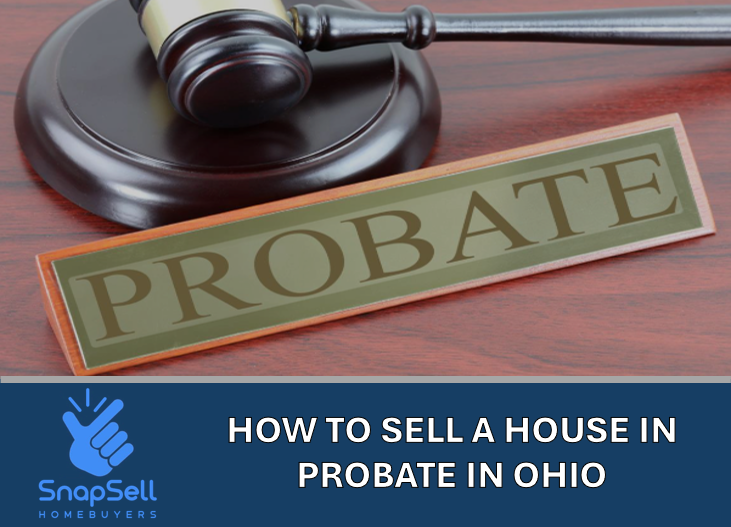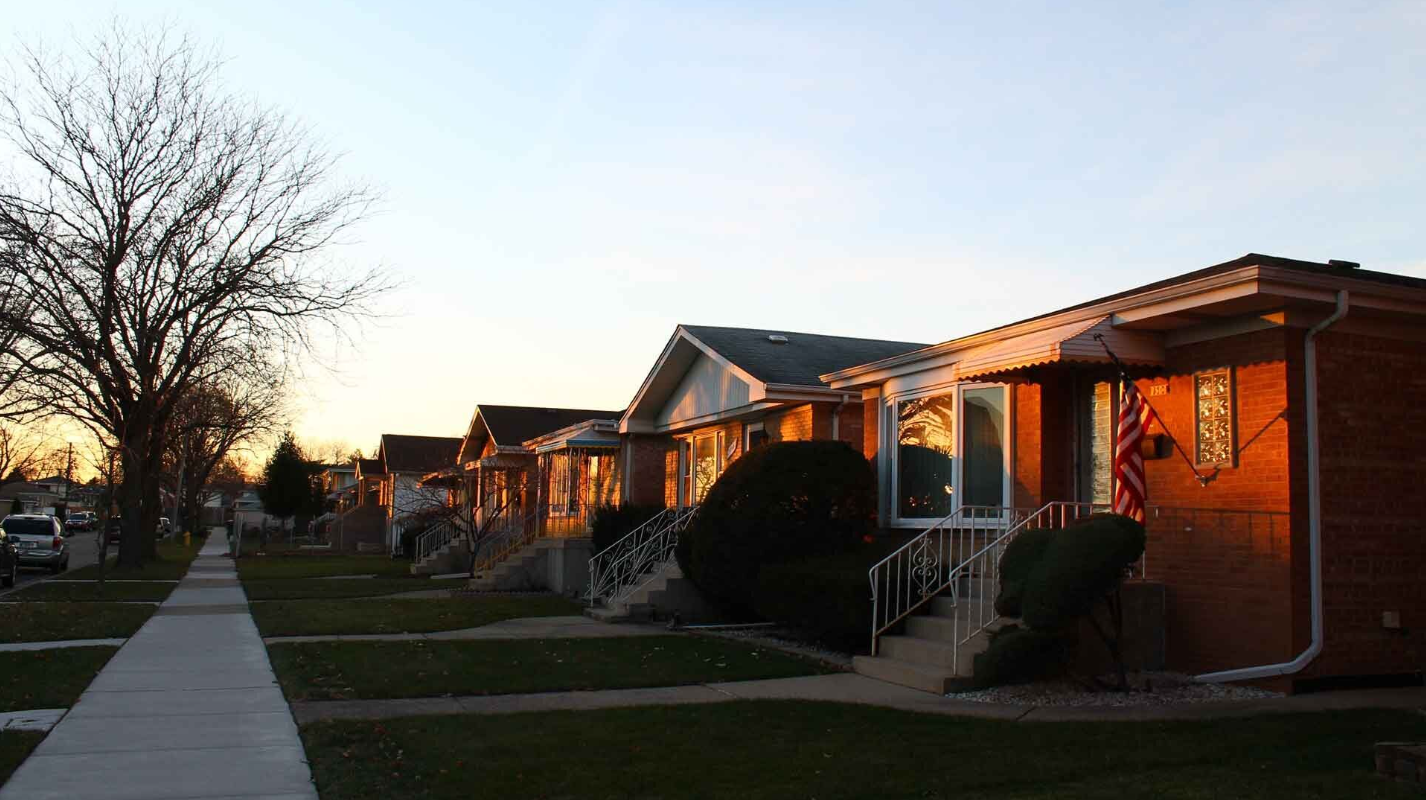
Selling a House in Probate in Ohio
When a loved one passes away and their home becomes part of an inheritance, it’s common for the heirs to sell the property. The loss of a loved one is one of life’s most painful experiences, filled with grief and deep emotion. Selling an Ohio home that needs to go through probate while you’re grieving can feel overwhelming. We’ve put together this guide to help you understand the probate process better and get a clear understanding of what your options are.
What is a Probate Sale in Ohio?
Probate is the legal process that validates a deceased person’s will (if there is one) and oversees the distribution of the estate’s assets to the heirs or beneficiaries. The probate court will appoint an executor or administrator (if there is no will) to manage the estate. In Ohio, this process typically takes between six months to a year, but can be longer for more complex estates.
Do You Need to Go Through Probate to Sell an Inherited House in Ohio
In Ohio, probate can be streamlined for estates valued at $35,000 or less, or if the surviving spouse inherits the entire estate and the estate’s value is less than $100,000. This is called Ohio Small Estate Probate.
Outside of those two scenarios, careful estate planning can allow inheritors to avoid probate, which can save beneficiaries thousands of dollars in fees and legal costs. Proper estate planning can allow for a decedent’s personal property to be directly transferred as an inheritance with the following:
Transfer-On-Death Designation Affidavit
In Ohio, a transfer on death (TOD) designation affidavit (formerly known as a transfer on death deed) allows real estate owners to transfer their property to a beneficiary upon their death without probate.
Joint Ownership with Rights of Survivorship
Joint ownership with rights of survivorship, also known as joint tenancy with right of survivorship, is a form of property ownership where two or more people own an asset together, and upon the death of one owner, their share automatically transfers to the surviving owner(s), bypassing probate.
Revocable Living Trust
A trust is a legal arrangement that holds assets for the benefit of designated recipients. When an Ohio homeowner creates a revocable living trust during their lifetime, they maintain control of their property while alive and ensure it passes directly to their heirs after their death. It’s called “revocable” because you can change or cancel it at any time while you’re alive and have the mental capacity to do so.
Affidavit of Heirship
An affidavit of heirship is a sworn statement given by a person with knowledge of the deceased’s family history that is used to establish the legal heirs of someone who died without a will.
Probate Process for Selling Real Estate in Ohio
The process begins with someone filing a petition with the probate court to open the estate. This is usually done by the executor named in the will or by a close family member if there is no will. The process also involves filing the will (if one exists) and a certified copy of the death certificate.
The person initiating the probate process will typically decide whether to pursue formal or informal probate. If the estate is complex or if there are disputes over the validity of the will or disagreements between the beneficiaries, the court may ultimately decide to switch from informal to formal probate to ensure the estate is properly handled.
Formal Probate Sale
Formal probate is a court-supervised procedure for settling a deceased person’s estate. It includes verifying the validity of the will, if one exists, and appointing an executor or personal representative to handle the management and distribution of the estate’s assets. Formal probate is characterized by a higher level of judicial oversight, which increases the cost and time of the process, and is typically required when the estate is complex or contested.
Here are the 4 steps when selling an inherited property in the formal probate process:
Step 1: Appointment of Executor
An essential step in selling a probate property is appointing an executor or personal representative. If the deceased named an executor in their will, the court will typically uphold that choice.
If no executor is designated, the court will appoint an administrator, usually the next of kin, to handle the estate.
The role carries significant responsibility, including arranging property appraisals, managing marketing and sale efforts, paying probate fees, and distributing the proceeds to beneficiaries.
When navigating formal probate, it’s highly recommended that the executor seek the counsel of a probate attorney to help guide them through the legal process, ensure compliance with Ohio’s probate statutes, and protect their interests.
Step 2: Appraisal
After being appointed, the executor must get the house professionally appraised if they want to sell it during probate. The appraisal sets the foundation for the property’s market value and asking price. In most probate courts, the sale price must be at least 90% of the appraised value.
Step 3: Petition to Begin the Sale
Once the estate’s appraisal is finalized, the seller can submit a petition to sell the inherited property. This petition may indicate whether the seller plans to list the home on the open market, sell it to a cash buyer, or offer it at auction. Before the probate hearing, the seller may begin advertising the sale and share details about any current offers. Doing so allows other interested buyers to submit competing bids at the court hearing. It’s important to make clear to all prospects that the transaction can only move forward with the court’s approval.
Step 4: Court Hearing and Approval of Sale
During the probate hearing, the judge may open the floor for prospective buyers to submit bids on the property. Once the highest bid is accepted, the court will review the required paperwork and approve the home’s sale. However, if any heirs object to the sale, it might not proceed.
In some situations, the probate process only needs minimal court oversight. The seller can submit forms requesting the court to issue letters of testamentary, legal documents that empower the estate administrator to manage the estate’s assets and list the family home for sale. To avoid a court hearing and bidding, all interested parties must agree to begin the sale process.
Informal Probate Sale
Informal probate is a simpler, faster way to handle probate with minimal court involvement. It’s meant for simple and uncontested estates. These are estates where the assets are easy to identify and value, there are few creditors, and the beneficiaries are in agreement about the distribution of assets. This process is typically quicker and less expensive than formal probate.
Here are the 4 steps when selling an inherited property in the informal probate process:
Step 1: Appointment of Executor
Similar to the formal probate sale process, an executor or personal representative is appointed to oversee the transactions. If no executor is named, the court will appoint an administrator. In most cases, the executor will not require the assistance of a probate attorney.
Step 2: Submitting Probate Forms
The executor must complete and submit all required probate forms to the probate court. These forms are often different from those used in formal probate sales.
Step 3: Issuance of Letters of Testamentary
Once the primary forms are filed, the court will issue Letters of Testamentary. These documents grant the executor the authority to manage the deceased’s assets.
Step 4: Selling the House
Once the court approves the sale of the house, the executor is free to list or sell it by any legal means, including selling it directly to companies that specialize in buying properties in probate.
Options When Selling a Probate House in Ohio
Listing the Property on the MLS with a Realtor
If you’re looking to maximize the sale price, working with an experienced real estate agent might be your best option. They understand the market and can recommend high ROI upgrades as well as list the property on the MLS to get maximum exposure. However, selling properties the traditional way can be time-consuming and expensive.
Selling an Ohio Probate House “As Is” to a Cash Home Buyer
When inheritors want to sell a probate house quickly without fees or closing costs, they can work with a cash home buyer or companies that buy houses for cash. These cash buyers simplify the process, allowing sellers to close deals fast. Since they purchase homes “as-is,” sellers can avoid the expenses and hassle of cleaning or making repairs.
Selling a House in Probate Frequently Asked Questions
How Long Does it take for a House to go through Probate in Ohio?
Selling a house through probate usually takes anywhere from six months to a year. Ohio probate law gives creditors up to six months after the decedent’s death to make any claims against the estate. Additionally, family disagreements, title complications, outstanding debts, and other obstacles can further delay the sale.
Can a House be Sold While in Probate?
Yes, a house can be sold during the probate process. Probate properties are sold either with a real estate agent using standard marketing methods, or to a cash buyer if you want a quicker, hassle-free sale.
Can an Executor Sell Property without all Beneficiaries Approving?
It depends. Executors are responsible for resolving conflicts as much as possible, while following the instructions outlined in the will and complying with Ohio probate laws. Executors generally have the power to sell property without unanimous approval from heirs. However, if the sale is disputed, the executor may need to seek approval from the court. The court then examines the merits of the case to take into account factors such as the executor’s reasons for selling, the benefits to the estate, and the objections raised by heirs.
Easiest Way to Sell a House in Probate
If you’re a seller in Ohio looking for an easy way to sell an inherited house in probate, consider a cash sale. Selling your home “as-is” for cash lets you avoid the burden and costs of mortgage payments, taxes, insurance, repairs, and renovations. With a cash buyer, there’s no need to list the property or pay realtor commissions, and the sale is guaranteed to close smoothly.
Snap Sell Homebuyers is a trusted cash home buying service, making it simple to sell probate properties quickly. We purchase homes of all ages and conditions all over the state of Ohio, including Akron, Cleveland, Canton, Parma, Medina, Massillon, Strongsville, Brook Park, Barberton, and more. If you want to sell your inherited house fast, contact us today. We’re ready to help!

